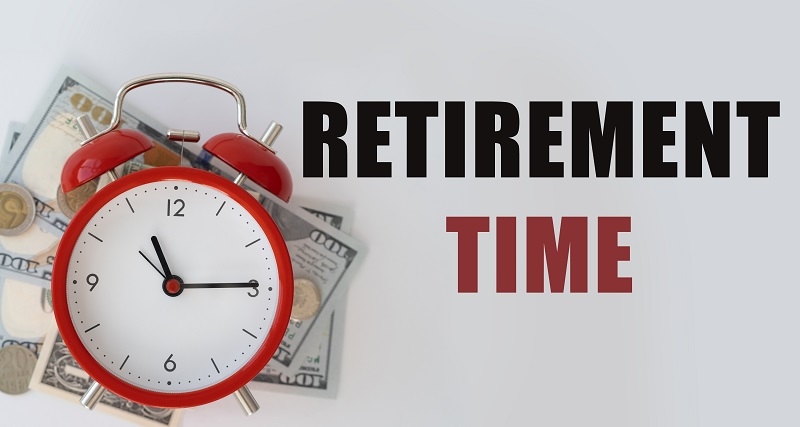
If you're planning your future based on what you've heard about retirement, chances are you're building on a stack of bad advice. Retirement myths aren’t just outdated—they’re dangerous. They distort your expectations, mess with your money, and could leave you scrambling when it’s too late to pivot. From believing pensions will save you to assuming you’ll suddenly live frugally, these myths quietly sabotage solid financial planning.
Let’s cut through the noise and tackle the 6 retirement myths to avoid—the ones that sound logical but are quietly draining your future stability.
You’ve probably heard some version of: “You’ll spend less in retirement,” “Social Security will cover you,” or “Just invest in index funds and chill.” These aren’t harmless assumptions—they’re the exact kind of thinking that fuels bad decisions. What’s worse? Most people don’t question them until they’re knee-deep in unexpected bills, health concerns, or shrinking savings.
It’s time we unpack the biggest retirement myths and the retirement risks attached to each. If you’re serious about not letting fantasy cloud your financial future, read on.
Here’s the fantasy: You retire, and suddenly your days are filled with yoga, travel, and guilt-free naps. But reality? Not so simple.
Truth: Retirement doesn’t magically give you energy, money, or purpose. Without structure or goals, time turns into a vacuum—and idle time can get expensive. From spontaneous vacations to house upgrades to boredom-induced spending, costs creep in fast.
The Risk: If you haven’t factored lifestyle expenses into your retirement planning, this dream can become a financial trap.
Top Pick: Smart Retirement Planning Tips for Your 20s Through Your 60s
This one’s a classic. People assume that between Social Security, employer pensions, and maybe a few savings, they’ll be set.
Reality check: Those checks might not stretch as far as you think—especially not with rising health care costs and inflation nibbling away your purchasing power.
The Risk: Blindly trusting fixed income sources creates one of the most underestimated retirement risks—outliving your money.
This myth needs to die. Downsizing sounds nice in theory, but many retirees end up spending more, not less. Why? Time.
More time = more spending. Whether it’s hobbies, home renovations, gifting grandkids, or health treatments—expenses don’t always shrink just because your paycheck does.
The Risk: Assuming a sudden drop in spending leads to underfunded retirements and panicked cutbacks when it’s too late to course-correct.
Let’s be honest: you might want to work forever. But that doesn’t mean you can. Health issues, layoffs, or age discrimination can force early exits.
The Reality: Relying on future income is not a plan—it’s a gamble. And depending on adult children to support you? That’s pressure no one wants to put on family.
The Risk: You may find yourself jobless, unprepared, and without a fallback. That's one of the silent killers in the list of 6 retirement financial myths to avoid.
A lot of people romanticize passive income and think their portfolios will carry them through retirement, no sweat. But if you're drawing down your assets during a market dip, that recovery might come too late.
The Reality: The order in which you experience gains and losses—called the sequence of returns—can wreck a portfolio even if the market rebounds.
The Risk: Mismanaging withdrawals or sticking to autopilot investments can shrink your savings faster than expected. It’s one of the most ignored retirement risks, yet one of the most damaging.
Here’s the kicker—David Letterman says retirement is nonsense and myth. And he’s not wrong.
After decades on late-night TV, Letterman called retirement a myth, saying, “Once you stop working, you stop being alive.” For him, retirement wasn’t the end. It was a shift. He’s producing, creating, and staying sharp—not fading into irrelevance.
The Truth: Retirement doesn’t mean sitting back and fading away. The real myth? That purpose dies with your career. Staying engaged, whether through consulting, volunteering, or passion projects, is what keeps people mentally and emotionally fit.

Let’s round them up:
Earning more doesn’t matter if you spend every dollar. Without intentional saving and investing, a raise is just a bigger liability.
Wrong. The earlier you prepare, the better your options. Waiting until you're close to retiring often leads to compromised choices.
Nope. Starting small beats starting late. Time is your real asset—not just dollars.
We’ve already seen this one’s flawed. It’s not about what’s coming in—it’s about whether it keeps up with your real-life expenses.
Diversification isn’t about quantity—it’s about smart allocation. Overdoing it just creates a mess with no real benefit.
Not if taxes, legal fees, and debts cut into it. Estate planning isn’t just about having a will—it’s about protecting your wealth now.
Avoiding these 6 retirement financial myths to avoid isn’t optional—it’s essential.
Beyond myths, here’s the hard stuff—the retirement risks most people underestimate:
The worst retirement risks are the ones you didn’t prepare for—not the ones you saw coming.
Here’s what works:
When David Letterman says retirement is nonsense and myth, he’s not being dramatic. He’s challenging a belief system that says life slows down when your career ends. The truth? Life shifts. Your identity doesn’t have to dissolve with your job title.
What you really need isn’t retirement—it’s freedom. And that freedom doesn’t come from blindly trusting myths. It comes from strategy, discipline, and staying aware of how things actually work.
Don’t Miss: Maximize Your Social Security Benefits: Expert Guide
Let’s not sugarcoat it. Most people aren’t failing retirement because they didn’t work hard enough—they’re failing because they believed the wrong things. These retirement myths sell you a fantasy and leave you scrambling when reality shows up.
So, here’s the deal:
And remember—just like David Letterman says retirement is nonsense and myth, you get to define what this next chapter looks like. Make sure it’s on your terms.
This content was created by AI